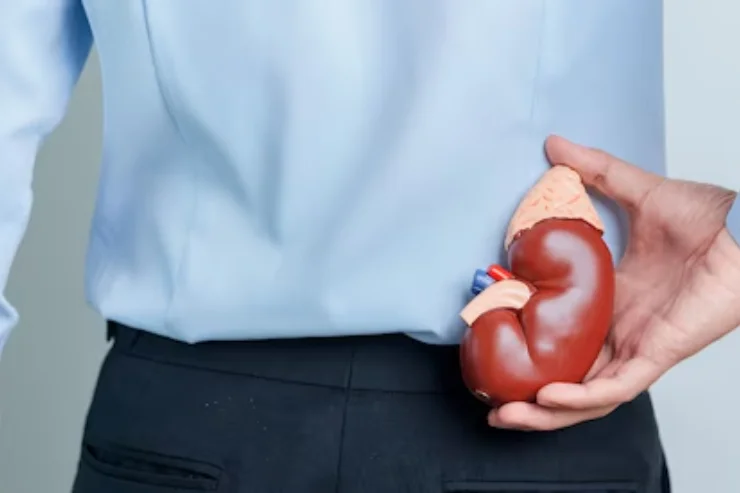Kidney Stones Management

Kidney Stones Management
Kidney stones, or renal calculi, are hard deposits of minerals and salts that form in the kidneys. They vary in size and composition, and their management depends on factors such as size, location, and associated symptoms.
1. Small Stones Without Symptoms
- Increased Hydration: Drinking plenty of water (2-3 liters daily) helps flush out small stones.
- Pain Management: Over-the-counter medications like ibuprofen or acetaminophen relieve discomfort during stone passage.
- Medications: Alpha-blockers such as tamsulosin may help relax ureteral muscles, facilitating stone passage.
Large or Symptomatic Stones
- Extracorporeal Shock Wave Lithotripsy (ESWL): High-energy sound waves break stones into smaller pieces that can pass naturally.
- Ureteroscopy: A small scope is inserted through the urethra to remove or fragment stones.
- Percutaneous Nephrolithotomy (PCNL): A minimally invasive surgery for large or complex stones, involving removal through a small incision in the back.
- Surgery: Rarely, open surgery may be needed for exceptionally large or complicated stones.
3. Preventing Recurrence
- Dietary Modifications:
- Limit salt, oxalate-rich foods (spinach, nuts), and animal protein.
- Increase intake of citrate-rich foods like lemons and oranges.
- Stay Hydrated: Maintain high fluid intake to dilute urine.
- Medications: Depending on the stone type, doctors may prescribe medications like potassium citrate or thiazide diuretics to prevent recurrence.